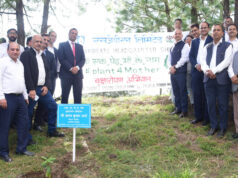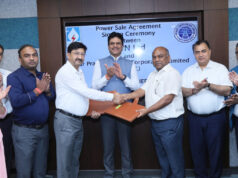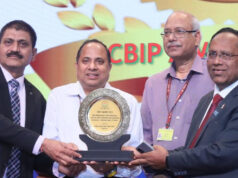Joint Committee Formed to Probe Accusations of Environmental Norm Violations in Himachal Pradesh
The National Green Tribunal has taken a stern stance on the issue of debris dumping in the pristine Sutlej River. Recognizing the gravity of the situation, the tribunal has established a joint committee comprising the State Pollution Control Board and the Forest Department to launch a thorough investigation. The committee has been tasked with conducting an on-the-spot inquiry to determine if any violations of environmental norms have occurred, emphasizing the need for prompt remedial and preventive measures.
The probe was initiated based on a letter of complaint submitted by Meera Thakur from Chintala village, highlighting the alleged dumping of debris by SJVN (Sutlej Jal Vidyut Nigam Limited) during the construction of a tunnel from Marola to Chintala village. It is reported that the debris resulting from the tunnel construction is being directly disposed of into the Sutlej River, causing not only harm to the river itself but also posing a threat to the surrounding forest ecosystem.
The National Green Tribunal has instructed the Himachal Pradesh State Pollution Control Board and the District Forest Officer (DFO) of Shimla to conduct a comprehensive investigation into the matter. The tribunal holds the State Pollution Control Board accountable for ensuring compliance with its orders and safeguarding the environmental integrity of the region. A detailed action taken report is expected to be submitted within a period of two months, outlining the measures taken to address the violations.
Water Pollution Crisis and the Need for Immediate Action
The dumping of debris in the Sutlej River raises significant concerns about water pollution and its detrimental effects on the ecosystem. Water pollution has become a pressing global issue, with adverse consequences for human health, wildlife, and the environment as a whole. It is imperative that strict measures are taken to prevent and mitigate water pollution, particularly in fragile ecosystems like rivers.
Research indicates that water pollution poses severe risks to aquatic life, impacting the delicate balance of ecosystems and leading to the loss of biodiversity. Contaminated water can also have detrimental effects on human populations, causing waterborne diseases and health complications.
In light of these challenges, it is crucial for authorities and stakeholders to prioritize sustainable practices and effective waste management strategies. The responsible disposal of construction debris, strict adherence to environmental norms, and robust monitoring mechanisms are essential to safeguard the integrity of water bodies and protect the environment for future generations.
The National Green Tribunal’s intervention in the matter of debris dumping in the Sutlej River highlights the need for proactive measures to combat water pollution. The joint committee’s investigation, alongside the State Pollution Control Board’s compliance with the tribunal’s orders, will play a crucial role in identifying any violations and implementing necessary actions to mitigate the environmental damage. Addressing the water pollution crisis requires collective efforts and a commitment to sustainable practices to ensure the long-term health and vitality of our precious water resources.













